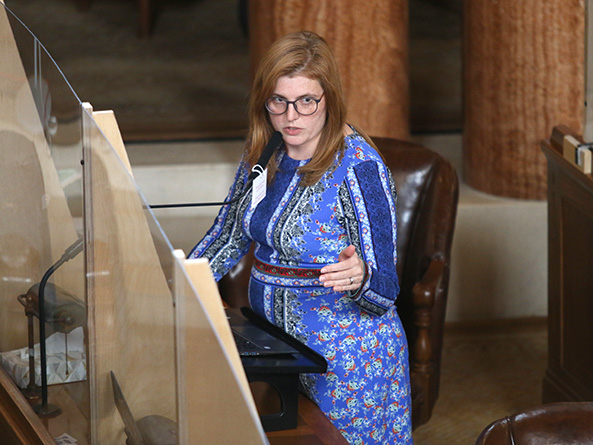Proposal to assist children with developmental disabilities advanced
A bill that seeks to supplement existing services for children with developmental disabilities in Nebraska advanced from general file May 11.

LB376, as introduced by Omaha Sen. Machaela Cavanaugh, would require the state Department of Health and Human Services to apply for a waiver to administer a home and community-based support pilot program for families of children with disabilities. The waiver would supplement existing developmental disability services and:
• have an annual budget for long-term services and supports capped at $12,000 per person;
• offer Medicaid eligibility for children with disabilities by disregarding parental income;
• be administered by the state Division of Developmental Disabilities of DHHS; and
• allow families to self-direct services.
Nebraska does not currently have a Medicaid waiver designed for children, Cavanaugh said, leaving many families unable to afford services, treatments and equipment that often are not covered by insurance. This gap in coverage has caused the state’s developmental disabilities wait list to grow to 2,964 individuals, she said, 55 percent of whom are children.
“Fifty-three percent of the individuals on the waiting list receive no services at this point and rely solely on family and friends,” Cavanaugh said. “[The Health and Human Services Committee] received absolutely heartbreaking calls from families who were forced to consider moving from the state or divorce so that they can continue to receive care for their family member.”
A Health and Human Services Committee amendment, adopted 35-0, would reduce the annual per person cap on services to $10,000, limit the number of participants to 850 and require DHHS to apply for a three-year Medicaid waiver rather than establishing a pilot program. The family support program would be set at an intermediate care facility institutional level of care.
The amendment also would require DHHS to collaborate with private nonprofits, if private funding is available, to complete an independent evaluation of the program.
La Vista Sen. John Arch, chairperson of the committee, said the amended bill would reduce the state’s wait list, which he said has grown at an “alarming rate” in recent years.
“Individuals waiting for services … could be waiting for anywhere from two to eight years,” he said. “Some individuals have waited for services longer than a decade.”
Sen. Lynne Walz of Fremont said the bill was innovative and would give families the ability to plan for services for their children — something not possible given the length of current wait times.
“If we keep doing things the way we have been, we’re just going to see that list continue to grow,” Walz said.
Senators advanced LB376 to select file on a 32-0 vote.


